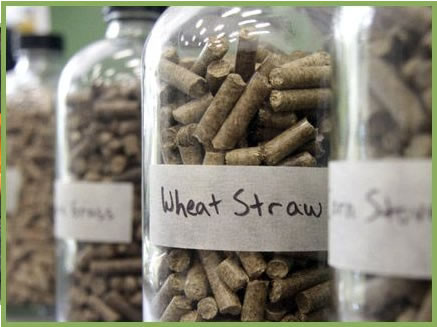Bio-fuels

Bio-fuels refer to fuels made from organic matter. It is a little confusing because oil is also a bio-fuel, but one that takes millions of years to produce. You may wonder why we didn't include natural gas in the last sentence. The reason is that natural gas is produced from decay of all kinds of wastes, including plant matter, but takes 30 days or more to produce. Thus, it fits perfectly well into the basket of bio-fuels, even though a lot of it has been produced and stored millions of years ago. Most frequently, we refer to grain alcohols, and vegetable oils as bio-fuels, and of course they are. But, the most often produced bio-fuel, natural gas, needs to be brought back into the conversation, and given the prominence that it deserves. We will discuss the pros and cons of the main bio-fuels in this section on Renewable Energy/Bio-fuels.
Bio-gas
Bio-gas results when we starve organic matter from oxygen. The process is called anaerobic digestion. Anaerobic digestion usually produces about 60% methane and 40% carbon dioxide. Since natural gas is 80-90% methane, AD is a good source of bio-natural gas, or as we say, bio-gas. We go over the details on the page "Summary of Renewable Natural Gas Production". A more complete introduction is in Anaerobic Digestion to Bio-methane.
Overview of bio-fuels
Ethanol
The other essential bio-fuels are Alcohols: We are all familiar with ethanol. It is the alcohol that is in beer and wine and spirits. In the last decade we have become aware that ethanol can be used as a fuel. There are currently about 2500 E-85 filling stations in the US. We discuss ethanol in some detail on the page "Ethanol Fuels". Although we know that ethanol is made from corn, most of us don't know that it can be made from natural gas or bio-gas.
Methanol as a Bio-fuel
We are less familiar with methanol. Methanol is the simplest alcohol, having only 1 carbon atom. It is best made from a process that converts natural gas into what is called a syngas (synthesis gas) and then passed over a catalysts -- resulting the the liquid, methanol. Methanol is discussed in detail on the page "Methanol Fuels". Here we will say that it is a cheaper and cleaner alternative to ethanol for spark ignited Internal Combustion Engines.
Bio-diesel
Bio-diesel is made from vegetable oils. Its good and bad attributes are discussed on the Bio-diesel page.
Algae
The fastest growing plant on earth, algae loves our wastes, both water wastes and carbon dioxide.
General discussion
Bio-fuels made from distillation of grains are currently favored for fuel in transportation.
Pros:
Cons:
Bio-diesel:
Vegetable oils can be effectively converted to bio-diesel

